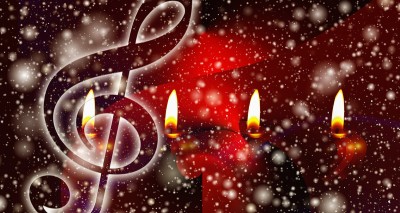Let Us Be Eclectic in Our Hymn Singing

Image by geralt / Pixabay
One of the biggest arguments in the small membership church has been over choosing hymns and music styles. Back in the '60s, when I was in high school, there were heated discussions about hymn selection and using guitars rather than the organ during worship. Years later, I remember standing at the door after church and having an older member ask me why we only sang new hymns during worship. Then moments later, a young parent asked me why we only sang traditional hymns during the worship service. Even though we had two traditional and two modern hymns, neither person was happy.
The blessing of being in a small membership church is that we become like family with different tastes in music and worship. Unfortunately, we sometimes have trouble dealing with the other's taste in music. Instead of learning to appreciate different styles of music, we spend time arguing about which hymns we want to sing on Sunday morning.
May I suggest we remember that small membership churches are also known as "Family Churches." And because we are a multi-generational family, we will have family members who like different styles of music, which is good. Honestly, different types of music are good, if, and this is a BIG "IF," we will accept and sing various hymns.
Here are some suggestions to help us become eclectic hymn singers.
- God calls us to make a joyful noise and does not limit us to one type of hymn.
- We come to worship God. Singing is an essential part of praise and worship.
- All instruments can help us to praise God.
- During congregational hymns, praise bands are there to lead singing and not to perform like at a concert.
- During congregational hymns, the organist/pianist is there to lead singing, not perform like at a formal recital.
- Musicians should help people learn new hymns. Because people are timid about singing during worship when they don't know a hymn, have a hymn sing to help the congregation learn new songs.
- Learn about the history of hymns – who wrote it and why.
- Some hymns are important to worshippers because they helped them through a significant life event. Give people opportunities to share how their favorite hymn shaped or helped their faith.
- Remember, hymns can be a prayer. Take time to meditate on what you are singing.
- Remember Rule number IV in Wesely's Directions for Singing, "Sing lustily and with good courage. Beware of singing as if you were half dead, or half asleep; but lift up your voice with strength. Be no more afraid of your voice now, nor more ashamed of its being heard, than when you sung the songs of Satan."
Several years ago, I attended an Orders and Fellowship meeting for pastors. The people who designed the event wanted to introduce the clergy to modern music. Every service was praise music which is not my favorite. I arrived before the final worship service, so I could take a few minutes to pray (complain) to God. I wondered why they did not choose traditional music; that is the hymns I like. And then God spoke to me. How would I feel if I liked praise music and all the congregation sang was traditional music?
Since then, I have tried to be more eclectic, learning praise and modern hymns. I have included them in my personal prayer time and worship. I have found that they enrich my spiritual life and help me to grow closer to God.
I pray that small membership churches might become a place of worship where people of all ages can come and share their faith journey through hymns that speak to all ages.
